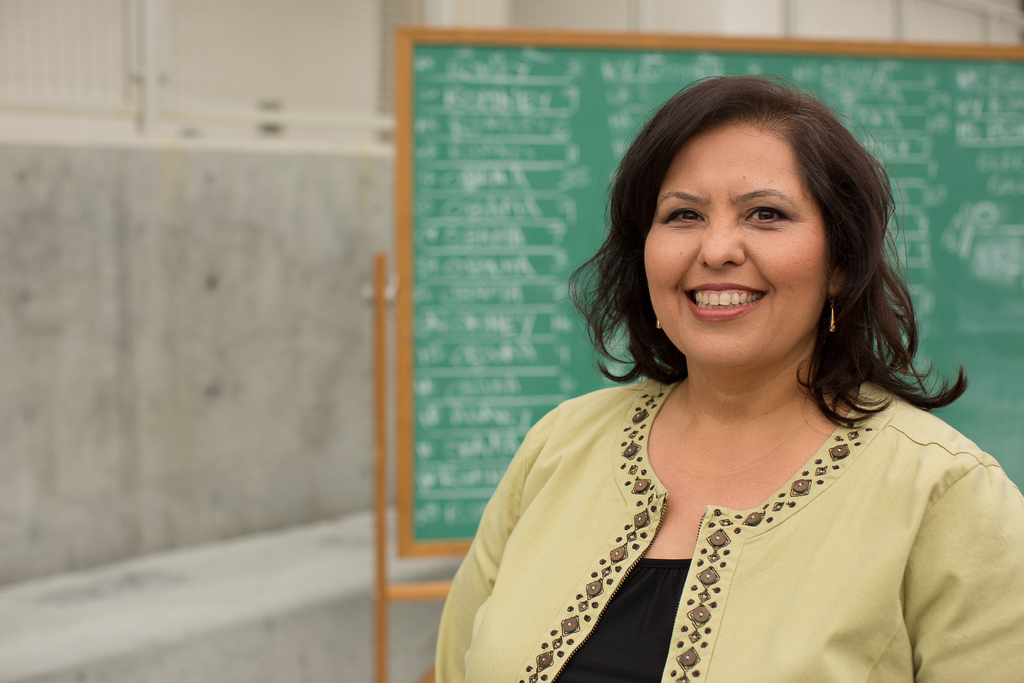Mónica García: Invitational Leadership for Systemic Change
Mónica García advocates for graduation, equity, and justice

“Women bring collaboration and cooperation into leadership, not just competition,” says Mónica García, who proudly represents Board District 2 in the Los Angeles Unified School District (LAUSD). “Women are resourceful problem solvers.”
Like most women in leadership roles, García has experienced her share of sexism and racism in her education career, beginning with her undergraduate studies at UC Berkeley where a white professor asked her to speak about welfare in a political science class. After focusing on minority and women’s studies, García felt she had acquired a strong toolset to work with first-generation students, students of color, and other disadvantaged students to increase their graduation rates.
“I think formal education really gave me the language to understand the concept of power and how it is used consciously or unconsciously by position,” she says.
García was clear on her role as an academic advisor in school when she began. Her job was to help students see what was possible for their futures. “I remember being the only woman, the only Latina in the room, and having to work double time to understand the nuances of all the nonverbal communication there,” she says.
Calling and Working for Change
LAUSD leaders are now vocal about valuing diversity, but when García arrived in 2001, she found the “isms” were alive and well. She showed courage working with men and dominant groups to help them understand how they were showing up by asking, “Are you aware of your language and behavior and how you are coming across? Is this your intention?”
Although García has experienced her own rejections for being too loud, independent, and bossy, she believes she has a responsibility to remind people that we are being called to change. “In those rooms, I try to remember that people have fought so that I could be there, and that I have a responsibility to try to keep doors open,” she says. “I lean on overcoming fear to ask how we might do this differently? But if we choose to keep the status quo, it’s our duty to at least acknowledge the privilege that is being afforded in doing that.”
LAUSD is focusing on systemic change. “Our young people are not interested in perpetuating some of the constructs we’ve lived in,” she says. “We are inviting courage in leadership to understand that we need to invest in communities and continue to work on graduations and to get better at those.” García notes that leadership is not easy, and the world is changing faster than we are. “We need to be intentional about who leads and establish equity by putting our money out there to make it happen,” she says.
Tools and ideas to transform education. Sign up below.
“Teaching has to be a community with purpose and intention,” says García. “Teachers should demand from the system what they need and acknowledge what is not working. We want teachers who have high expectations, love out loud, and don’t give up on their kids.”
García challenges current thinking by her advocacy for 100% graduation rates. “Schools need to serve all children and when schools make great gains, it’s because leadership, communities, and partners all come together in strength and transparency. We need to invest in schools and communities,” she says. “We need to be present and involved for change.”
In reflecting on her role as a leader, García expresses gratitude for the people who made room for her at the table. “I’ve gotten a chance to benefit from the lens of other people,” says García. “I encourage women leaders. There are stories that we can tell each other that inspire and stimulate with their generosity. Every one of us has a responsibility to be present and work for change.”
LAUSD Board Member Mónica García is the third Latina to serve on the Board of Education in its 155 year history.
Annie Galvin Teich has more than 25 years' experience in education writing and publishing. She is an edtech industry expert in content marketing and copywriting. As a regular contributor to Tech & Learning she focuses on the information needs of district decision makers.
